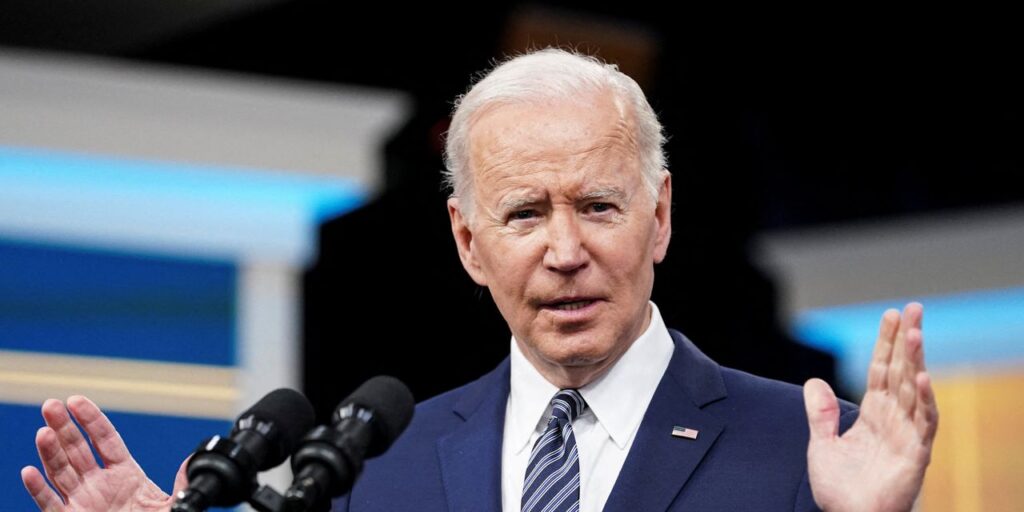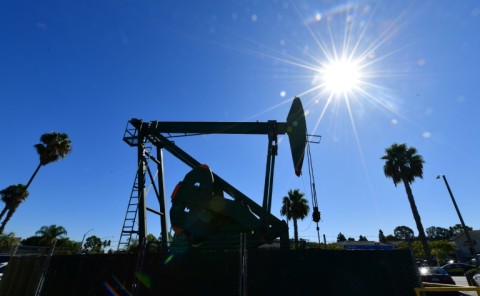An oil pumping crane, working next to a burning pile in an oil field near Samara, Russia
Oil prices shrugged off Iran’s unprecedented attack on Israel, falling amid speculation that the conflict will be contained, according to Bloomberg.
Brent crude rose at the beginning of trading by only 0.7% to $91.05 per barrel, before falling towards $90. Iran launched more than 300 missiles and drones over the weekend, the first time it has struck Israel from its territory, although most of them were intercepted. The attack, which had been expected for days, was in retaliation for a strike in Syria that killed senior Iranian army officers.
“This war may be contained if the Israeli government follows the advice of the White House and abandons retaliatory action,” RBC Capital Markets analysts, including Helema Croft, said in a note. They said that the Iranian retaliations were “much more extensive than previous ones, but they were known in advance.”
Oil has been one of the strongest performing commodities this year. The OPEC+ alliance has maintained tight supply control to deplete inventories and support prices. The latest attack escalates tensions in the region, which produces about a third of the world’s crude oil, and represents the latest development in the confrontation that followed a Tehran-backed Hamas attack against Israel last October. However, the Iranian mission to the United Nations said the issue “can be considered closed,” which for now reduces the risk of a broader conflict.
Real Risks of Hormuz
“The situation is fluid, and if Israel signals it will not retaliate, market tensions will subside,” said Arne Lohmann Rasmussen, head of research at A/S Global Risk Management.
Shipping risks also came into focus after Iran seized the ship MSC Aries near the main waterway in the Strait of Hormuz shortly before strikes against Israel. The beneficial owner of the ship is part of the Zodiac Group, which is linked to Israel, according to data compiled by Bloomberg. The move raises concerns about the safety of ships in the region, adding to previous logistical disruptions.
“The most fearsome scenario is closing the Strait of Hormuz,” Rasmussen said. “I don’t think Iran will close the Strait, but the risks are increasing.”
Trading was heavy, with nearly 70,000 Brent contracts changing hands during the first three hours of the session, a larger than usual level. More than 5,000 contracts of June call options at $95 a barrel for Brent crude, which profit when prices rise, were also trading at the time. June Brent options meant that volatility was slightly lower for put options and higher for put options.
Oil markets have tightened significantly in recent months, leading to higher energy costs and creating a headache for central bankers as they seek to stimulate their efforts to curb inflation. Before the Tehran strike at the weekend, crude oil analysts were already addressing the possibility of prices once again reaching $100 a barrel.
OPEC said last week that oil will need to be closely monitored in the coming months to ensure a “sound and sustainable market balance,” according to a monthly report. There are signs of growing demand. US refineries are preparing to boost fuel production for the summer driving season, while recent macroeconomic data from China suggests the economy may be turning the corner.
Related Topics :
Saudi Arabia Non-Oil Business Activity Rebounds in March- PMI
Saudi’s Non-Oil Activities Growth Reflects KSA’s Vision 2030 Success
Nasser: Oil to Be Part of Energy Mix, Demand for Oil to Increase
Short link :
Post Views: 119
https://www.leaders-mena.com/oil-prices-unaffected-by-iranian-attack-on-israel-bloomberg/




